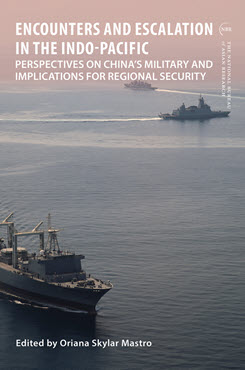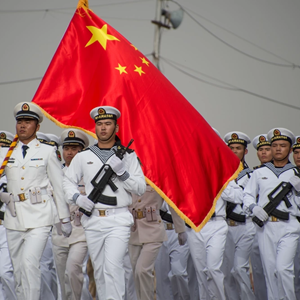Essay in NBR Special Report 108
The 2012 Scarborough Shoal Standoff
Analyzing China in Crisis with the Philippines
This essay analyzes China’s crisis response and management during the Scarborough Shoal standoff with the Philippines in 2012 and draws lessons about Chinese thinking and behavior for the Philippines as it continues to confront China’s maritime aggression in the South China Sea.
EXECUTIVE SUMMARY
MAIN ARGUMENT
While the Philippines instigated the crisis in Scarborough Shoal, China escalated it with a response of “reactive assertiveness.” At the heart of China’s confrontational stance is its uncompromising emphasis on maritime sovereignty and its deep insecurity both as a nation and as a great power. These characteristics are manifested in China’s attitude and actions toward the Philippines on various maritime issues, even after the conflict in Scarborough Shoal. China has been persistent in flexing its military muscle and economic might, which has destabilized overall relations with the Philippines. In response, the Philippines has exhibited two different policy approaches toward China during the successive administrations of Benigno Aquino III and Rodrigo Duterte. With sustained Chinese belligerence at sea, the Philippines under Ferdinand Marcos Jr. continues to further develop its active deterrence strategy by instituting and improving countermeasures against China.
POLICY IMPLICATIONS
- China’s mind-set and behavior at sea require consistent policy approaches from the Philippines that take into account China’s outlook on sovereignty and its implicit insecurities. The reality, however, is that the Philippines tends to suffer from policy inconsistencies between presidential administrations with different views toward China.
- China’s reactive assertiveness and escalatory behavior during the Scarborough Shoal standoff served as the impetus for the Philippines to develop an active deterrence strategy. Its goal is to empower itself in responding to current and future Chinese aggression, reduce tensions, and prevent any miscalculations at sea.
- China’s unrelenting maritime threats present the Philippines with opportunities to develop strategic countermeasures. The priority for the Philippines is to upgrade its maritime capabilities and expand security cooperation with other countries to deter China from further changing the maritime status quo in its favor.
Andrea Chloe Wong is a Nonresident Research Fellow at the Institute for Indo- Pacific Affairs in New Zealand. She formerly served as a Senior Foreign Affairs Research Specialist at the Foreign Service Institute of the Philippines.



 Unpacking China's Military Decision-Making: Perspectives from the Region
Unpacking China's Military Decision-Making: Perspectives from the Region
